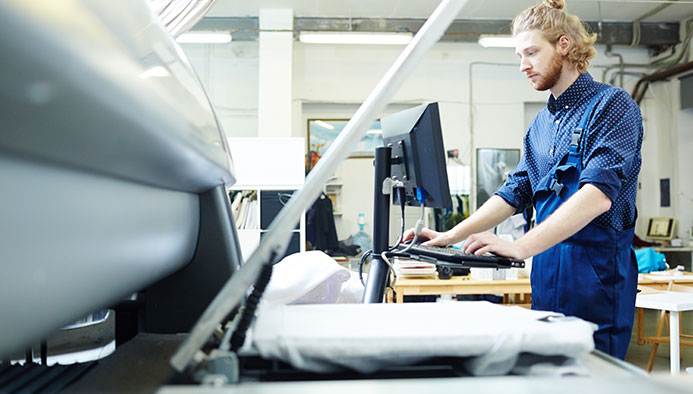Technology is taking over the office. That much we know. Most of what goes on in the office of the future is likely to be digitised. Where does that leave printing and paper? Probably not where you think…The Trend Towards Less Paper In The Office
Offices are cutting out paper for two main reasons. The first is that they think using less paper is good for the environment, and that a paperless office is a green office. We investigated this idea in a previous article — Time to bust a myth about the environmental impact of printing — and found it to be a fiction. For one, the printing industry is one of the most sustainable industries there is because trees are a renewable resource. For another, the printing and paper industries are actually among the biggest drivers of reforestation. For every tree cut down to make paper in the US, over nine more are planted. If we’re concerned about the environment, we should actually be using more paper, not less.
The most important reason offices are cutting out paper is actually a lot more sensible. Paper and printing are the driving force behind most manual processes in a business operation, and manual processes are an obstacle to efficiency, accuracy, flexibility and scalability in our digitally-powered, increasingly automated world. Companies that continue using them will not be able to keep pace with their competitors or offer the levels of service today’s customers demand. That’s why many offices are automating their workflows with software and eliminating paper from their process chains.
Putting Paper In Its Place
If there's an increasing trend towards paper-free processes, is it possible that the office of the future will have no paper at all?
Perhaps not. Neuroscience research shows that when it comes to getting people’s attention, paper-based content has the edge over digital-based content. Studies have shown that you’re more likely to understand and remember something written on paper than on a screen. In fact, one study revealed that paper won in virtually every area of memory-related testing. Key conclusions are that physical material is more “real” to the brain because it produces more sensory responses, requires more emotional processing, and engages directly with the brain’s spatial memory networks.
So, the best way to hammer home a message to your team might not be that sparkly PowerPoint with neat graphics and transitions, but an old-fashioned handout of the key points.
There’s also the problem of infobesity, aka information overload. We’re forced to trawl through so many emails, instant messages, notifications and updates via digital media that we just can’t manage it all. As a result, our attention spans are shrinking and we’re experiencing side-effects such as fatigue, high blood pressure, memory loss, diminished productivity and poor decision-making. It’s another reason why the continued use of paper in the office is a must. If what you’re trying to communicate really matters, you’re best-placed hitting “print”.
When you consider all this, it’s no surprise that a 2016 survey of 3,600 European employees by Epson found that 64% of respondents preferred to read reports and brochures on printed paper. Meanwhile, 83% said that a paperless office was unrealistic and 86% said that a ban on printing would inhibit productivity. These results align with how consumers feel about paper, too. A 2017 survey of 1,070 UK consumers by Two Sides revealed that 72% of people find reading printed books more enjoyable than e-books. And 63% said that they gain a deeper understanding of a story when they read it in a printed newspaper rather than on a device.
The Importance Of Efficiency For MPS Providers
What’s clear is that there is still a need for paper and printing in the office, and it will continue to play an important part of the office of the future. That’s good news for managed print services (MPS) providers.
However, the increasingly specialised role of paper and printing will make it necessary for MPS providers to improve their efficiency and productivity and have more control over their costs. A software solution like Evatic can help them do this. Specially designed for the MPS market, it uses powerful IoT capabilities, user-friendly business intelligence tools and cutting-edge mobile technology to fully automate and optimise your service operation, helping you become more profitable.
For more information about Evatic, send us at email at sales@asolvi.com.





